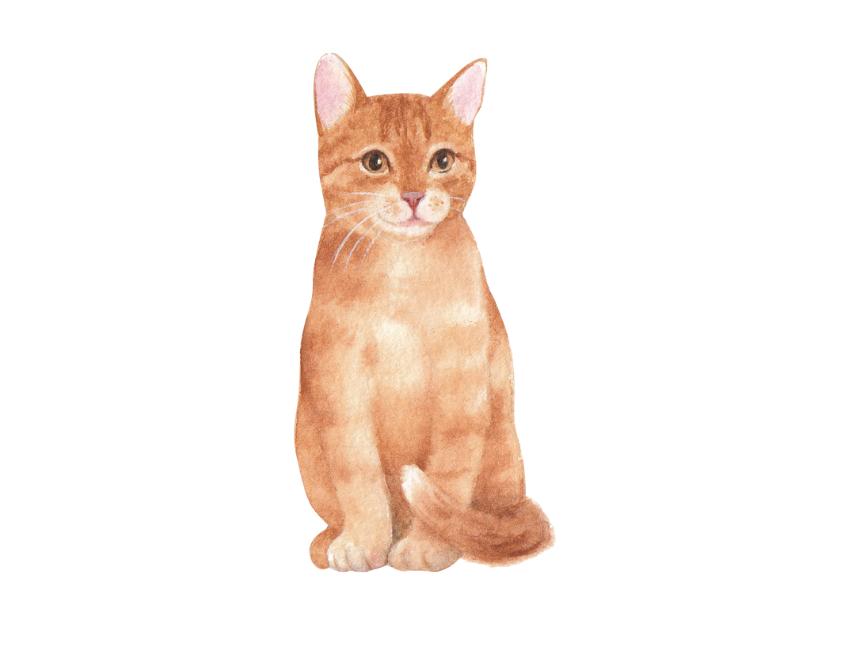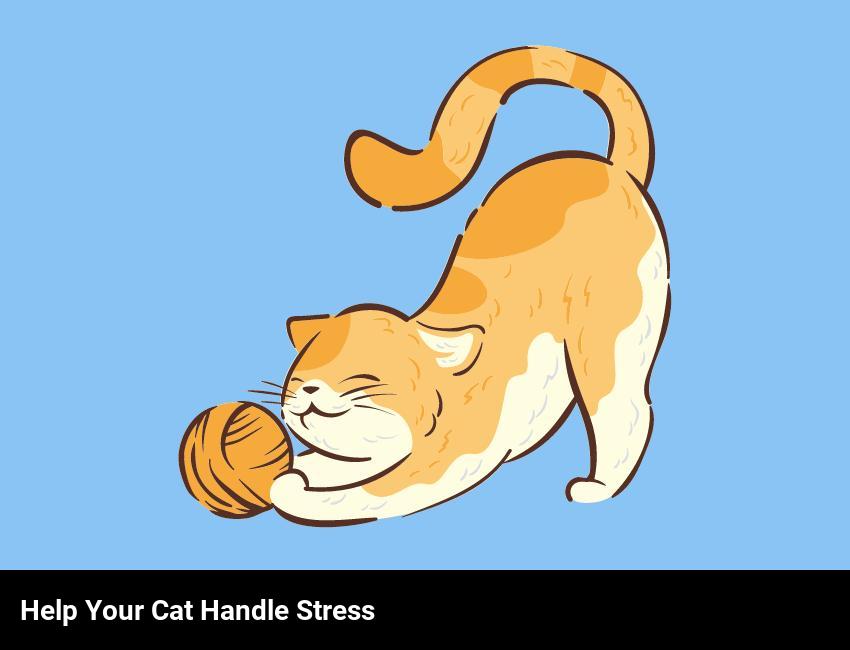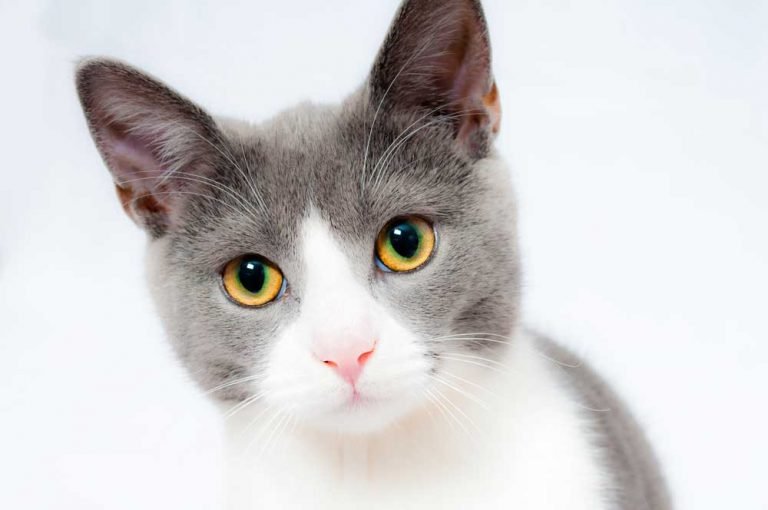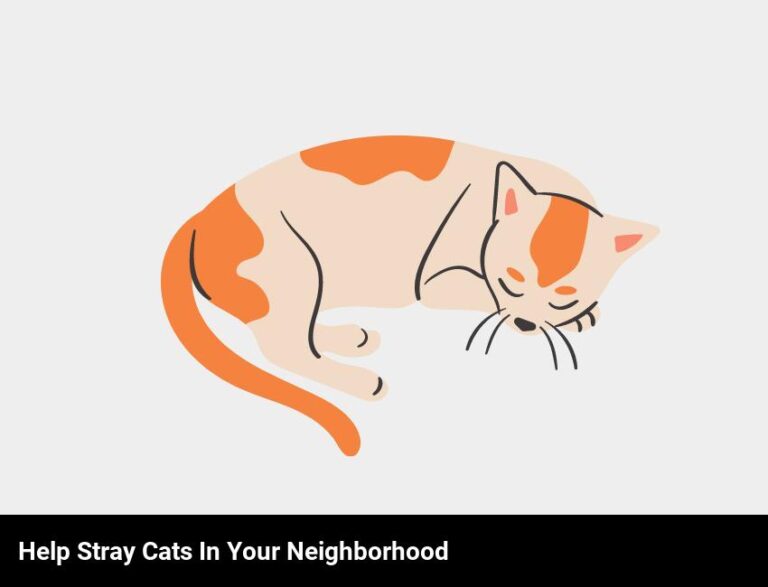How To Help Your Cat Handle Stress
Help your cat handle stress by providing a calm, safe environment at home. Make sure your cat has plenty of hiding places and comfortable places to rest, and give them extra attention when they need it. Reduce noise levels and changes to their routine as much as possible. Offer plenty of interactive toys and scratching posts to keep your cat mentally and physically stimulated.
As a cat owner, I know that cats can experience stress just like humans do. But unlike humans, cats often have difficulty communicating when they are feeling overwhelmed. That’s why it’s so important for us as pet owners to be aware of the signs of stress in cats and know how to help them handle it. I’m here to share what I’ve learned in my years of experience as a cat owner – from recognizing the signs of stress in cats to providing practical solutions for reducing it.
Have you noticed changes in your cat’s behavior or environment that suggest they are feeling anxious or stressed? Are they displaying signs of aggression or fear? Or maybe they just seem a bit off or disconnected? Whatever the case may be, it’s important to understand the root cause of the stress and come up with a plan to help them cope. We’ll talk about the common signs of stress in cats, what you can do to reduce it, and provide natural remedies for relaxation.
What are the common signs of stress in cats?
As a cat parent, it’s important to know the common signs of stress in cats so you can recognize when your furry friend isn’t feeling their best. Some signs of stress in cats include excessive meowing, hiding, and drooling.
Meowing: If your cat is meowing more than usual, it could be a sign of stress. Your cat could be meowing to get your attention or just to let out some of their anxiety.
Hiding: If your cat is hiding more than usual, this could also be a sign of stress. Cats use hiding as a coping mechanism when they feel overwhelmed.
Drooling: Drooling is also a sign of stress in cats. When cats are feeling stressed or anxious, they tend to produce extra saliva and drool more than usual.
These are just a few of the signs of stress in cats. If you notice any of these signs in your cat and are concerned, it’s best to take them to the vet for a check-up. Your vet can help determine the cause of your cat’s stress and recommend the best treatment plan.
What can you do to help reduce your cat’s stress?
You can do a lot to help reduce your cat’s stress and make them feel more comfortable in their environment.
Start by making sure they have a safe, comfortable place to stay. Set up a spot that’s just for them, like a cozy bed or box. Make sure they have plenty of toys, scratching posts, and other items that help them feel secure and entertained.
Playtime is also important for cats. Spend time with them every day, and make sure they get plenty of exercise and stimulation. Regular activities like playing with feather toys or laser pointers can help them stay active and reduce stress.
Give them plenty of love and attention. Pet them, brush them, and talk to them in a gentle, soothing voice. Make sure their food and water bowls are filled and that their litter box is kept clean.
Finally, make sure you’re not overloading them with too many changes. If you need to introduce a new pet, do it slowly and give them plenty of time to adjust. Remember that cats don’t like sudden, unexpected changes in their environment.
By following these tips, you can help reduce your cat’s stress and make them feel more relaxed and secure. They’ll be happier and healthier, and your bond will grow even stronger.
What environmental changes can help your cat feel more relaxed?
Making your cat’s environment more comfortable can have a huge impact on their stress levels. It’s worth taking the time to improve the quality of life for your kitty. Here are a few suggestions to help you create a stress-free environment for your cat:
Create a spacious, comfortable sanctuary. Cats need a safe, secure place to retreat to when they’re feeling stressed. Make sure their favorite spot is quiet, with plenty of soft materials for them to cozy up to.
Provide plenty of toys and play areas. Stimulating activities can help cats cope with stress. Place a few scratch posts, cat trees, and interactive toys around the house to keep your cat entertained and engaged.
Make sure your cat gets enough exercise. Regular exercise can reduce stress levels and help keep your cat healthy. Allocate plenty of playtime for your cat, and take them on daily walks if possible.
Keep a clean and tidy home. Cats don’t like to be surrounded by clutter and mess. Make sure you keep your cat’s home neat and tidy, with plenty of space for them to explore and relax.
By following these simple tips, you can help your cat feel relaxed and content in their environment.
Are there any particular behaviors you can do to help your cat cope with stress?
Yes! There are several behaviors you can do to help your cat cope with stress. First, it’s important to be aware of your cat’s individual personality and needs. Some cats will prefer to be left alone if they’re feeling overwhelmed, while others may crave extra cuddles and attention.
You can also help your cat by creating a safe and secure environment. Make sure they have plenty of hiding spots, such as a cat tree or bed, to retreat to when they need some privacy. Make sure to keep the litterbox clean and easily accessible. This will help reduce stress levels.
Provide your cat with plenty of interactive toys and playtime. This will help stimulate their mind and help them to destress. Make sure to provide plenty of scratching posts to keep their nails healthy.
Finally, try to keep your cat’s routine consistent. Avoid any sudden changes or loud noises that may be stressful for your cat. By taking the time to understand and meet your cat’s needs, you can help reduce their stress levels.
How can you support your cat if they are dealing with a traumatic event?
It is important to support your cat if they are dealing with a traumatic event. The best way to do this is to provide a safe, comfortable, and stress-free environment. This might include creating a cozy spot in your home where your cat can relax and feel secure. Make sure to give them plenty of love and attention and provide them with toys and activities that can help reduce their anxiety.
You should also talk to a veterinarian if your cat is having difficulty coping with a traumatic event. They can help you develop a plan to manage your cat’s stress and anxiety. Additionally, your vet may suggest medications or supplements to help your cat cope with their distress.
Finally, it can be beneficial to practice positive reinforcement with your cat. Reward them with treats when they display calm behavior, and avoid punishing them for displaying anxious behaviors. This can help to create a positive association with the environment and help them to cope with their stress.
By implementing these practices, you can help your cat manage their stress and anxiety when dealing with a traumatic event.
What should you do if your cat is displaying aggressive behavior due to stress?
When it comes to helping your cat handle stress, one of the most important things you can do is to recognize the signs of stress and aggression in your cat. If your cat is displaying aggressive behavior due to stress, the first thing you should do is identify what is causing the stress. Common causes of stress in cats include changes in their environment, loud noises, visitors in the home, and a lack of exercise.
Once you have identified the source of the stress, it is important to take steps to address it. For example, if the source of stress is a change in the environment, you can try to make the transition easier for your cat by slowly introducing them to the new space. If the source of stress is loud noises, you can try to reduce the noise levels in the home. If the source of the stress is visitors in the home, you can try to provide your cat with a quiet space they can retreat to when visitors come over.
In addition to addressing the source of the stress, it is important to provide your cat with plenty of exercise and mental stimulation. This can include providing your cat with toys, engaging in interactive play sessions, and taking them for regular walks (if possible). Exercise and mental stimulation can help reduce stress levels and can help your cat feel more relaxed.
Finally, it is important to provide your cat with plenty of love and affection. This can help strengthen the bond between you and your cat and can help them feel more secure and relaxed.
By recognizing the signs of stress and aggression in your cat, addressing the source of their stress, providing them with plenty of exercise and mental stimulation, and providing them with love and affection, you can help your cat handle stress more effectively.
Are there any natural remedies to help your cat relax?
Yes! There are a few natural remedies that can help your cat relax. To start, you can try using calming pheromone sprays and diffusers. This works by emitting a scent that helps your cat feel more at ease. Additionally, playing gentle music or nature sounds can also help create a calming atmosphere for your cat.
If your cat is feeling nervous, you can also try giving them a massage. Gently petting your cat’s back and head can help reduce their stress. You can also try putting some pressure on their back with your fingers. This helps them relax and can reduce their feelings of anxiety.
Herbal remedies can also be beneficial for cats dealing with stress. Catnip, chamomile and lavender are all known to have calming effects. By adding these herbs to your cat’s food or treats, they can benefit from their relaxing properties.
Finally, giving your cat plenty of playtime and exercise is essential to help them stay relaxed and healthy. Regularly playing with your cat can help keep their stress levels in check and can also help strengthen the bond between the two of you.
These natural remedies can help your cat relax and handle stress better. Try one or all of these options to help create a peaceful environment for your cat.
What should you do if you don’t think your cat is able to handle their stress?
If you don’t think your cat is able to handle their stress, the first step is to take them to the vet. The vet can help diagnose any underlying physical issues that may be contributing to their stress.
The second step is to create a stress-free environment at home. Reduce noise and activity levels, while also providing your cat with plenty of places to hide and relax. This can help them feel more secure and in control of their environment.
Also, play with your cat on a daily basis. This can help them to stay physically active and mentally stimulated. Additionally, providing your cat with plenty of toys and puzzles can keep them entertained and help them cope with stress.
It’s also important to recognize the signs of stress in your cat, such as excessive grooming or hiding. If you notice any of these signs, take the time to address it and create a calming space for your cat.
Finally, make sure you give your cat plenty of affection and attention. Show them that you care about them and that you want to help. Give them as much love as possible and be patient with them as they adjust to their new environment. This can go a long way in helping your cat manage their stress.

Frequently Asked Questions
How can you make your cat feel secure?
Making your cat feel secure is important for helping them handle stress. You can do this by providing a safe space where they can relax. Make sure they have a place to hide and take refuge if they feel overwhelmed. Additionally, create a daily routine that has regular mealtimes, playtime and affection. Provide them with lots of love and attention and be mindful of their needs. Finally, keep the environment comfortable and calm.
What types of activities will help your cat manage stress?
There are many activities that can help your cat manage stress, such as playing with interactive toys, providing a safe environment with places to hide and climb, and offering plenty of opportunities to cuddle and snuggle. You can also provide them with appropriate scratching posts, cat trees, and window perches to help them explore and exercise. Additionally, regular brushing, daily playtime, and providing a variety of food can help keep your cat feeling relaxed and content.
What should you do if your cat’s stress symptoms worsen?
If your cat’s stress symptoms worsen, the best thing to do is to seek advice from a veterinarian. It is important that your cat receive a proper diagnosis and treatment plan. Your vet may recommend lifestyle changes, medications, or alternative therapies such as pheromone therapy or acupuncture to help your cat manage their stress. Additionally, create a calm environment for them and provide them with plenty of love and affection.
Are there any special considerations when helping senior cats handle stress?
When helping senior cats handle stress, there are a few special considerations you should keep in mind. You should be aware of their age and make sure you don’t overstimulate them; provide a calm, quiet environment for them to relax in; and if possible, slowly introduce them to any changes or new environments in order to avoid overwhelming them. Additionally, make sure their living space is familiar and comfortable, free from loud noises and other potential stressors.
Is there anything you can do to keep your cat relaxed during vet visits?
Yes, there are some things you can do to make vet visits less stressful for your cat. Start by getting them used to travelling in a carrier. Provide plenty of treats and praise when your cat is in the carrier and make sure your cat is comfortable during the ride. Once you’re at the vet, make sure your cat is comfortable by providing a blanket or towel. If possible, bring a familiar item from home to make the cat more relaxed. Talk to the vet in a soothing voice to help keep your cat calm.







